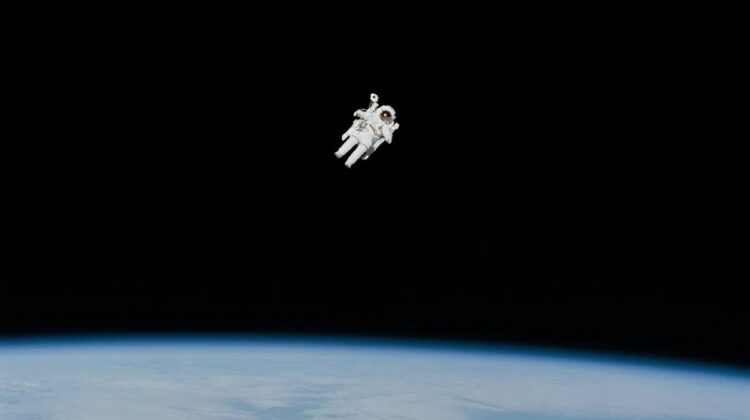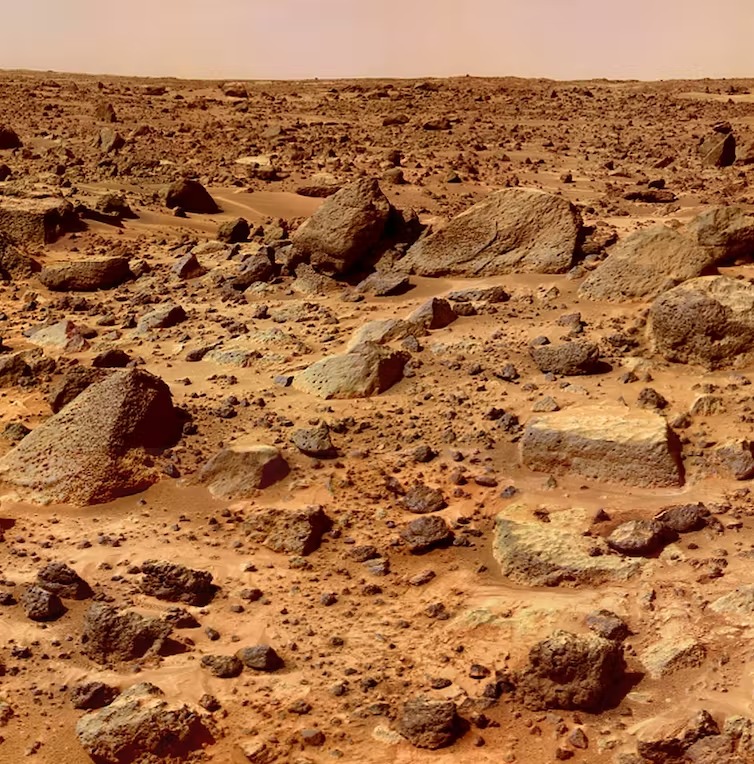
As recreational space travel becomes a very real prospect, there may come a time when humans travel to other planets for vacation, or even to live. Blue Origin, a commercial space business, has already begun sending paying customers on suborbital trips. Elon Musk’s SpaceX hopes to establish a base on Mars.
This implies we must begin to consider what it would be like to live in space, as well as what will happen if someone dies there.
After death on Earth, the human body goes through several stages of decomposition. These were detailed in Song Ci’s The Washing Away of Wrongs, effectively the first forensic science handbook, as early as 1247.
First, the blood ceases to flow and begins to pool because to gravity, a process known as livor mortis. The body then cools to algor mortis, and the muscles stiffen due to an unregulated calcium buildup in the muscle fibers. This is the condition known as rigor mortis. Enzymes, proteins that accelerate chemical reactions, then tear down cell walls, releasing their contents.
Simultaneously, germs in our stomach escape and spread throughout the body. They consume soft tissues, causing putrefaction, and the gases they emit cause the body to expand. Rigor mortis is reversed as muscles are destroyed, powerful odors are released, and soft tissues are broken down.
These are the intrinsic factors, but there are also extrinsic elements that influence the decomposition process, such as temperature, insect activity, burying or wrapping a body, and the presence of fire or water.
Mummification, or the desiccation or drying out of the body, occurs in dry, hot or cold environments.
Adipocere production can occur in moist, oxygen-free conditions, where the water can trigger the breakdown of lipids into a waxy compound via the hydrolysis process. This waxy layer can protect and preserve the skin by acting as a barrier on top of it.
However, in most situations, the soft tissues will eventually vanish, revealing the skeleton. These tough tissues are far more robust and can live for thousands of years.
Halting decomposition
So, how does death fare on the final frontier?
The livor mortis stage will undoubtedly be affected by the varying gravity encountered on other worlds, and the lack of gravity when floating in space would imply that blood would not pool.
Rigor mortis would still occur inside a spacesuit since it is caused by the absence of biological functioning. And germs from the intestines would continue to consume the soft tissues. However, because these bacteria require oxygen to function correctly, inadequate air supply would severely slow down the process.
Because soil microbes aid in decomposition, any planetary environment that restricts microbial action, such as excessive dryness, increases the likelihood of soft tissue preservation.
Decomposition at settings so distinct from the Earth’s environment implies that external components, such as the skeleton, would be more difficult. When humans are alive, bone is a living material that consists of both organic materials such as blood vessels and collagen, as well as inorganic materials in a crystal structure.
The organic component will normally disintegrate, thus the bones we see in museums are primarily inorganic relics. However, in extremely acidic soils, such as those found on other planets, the inorganic component can evaporate, leaving only the soft tissues.
Human remains decomposition is part of a healthy ecosystem on Earth, where nutrients are recycled by living animals such as insects, microorganisms, and even plants. Environments on various planets will not have evolved to make the best use of our bodies. Other planets in our system do not have insects or scavenger creatures.
However, the dry desert-like conditions of Mars may cause the soft tissues to dry out, and windblown sediment may erode and destroy the skeleton in the same way that we see on Earth.

Temperature is another important component in breakdown. Temperatures on the Moon, for example, can range from 120°C to -170°C. As a result, bodies may exhibit symptoms of heat-induced alteration or freezing damage.
However, I believe that the remains would still appear human because the whole process of decay that we witness on Earth would not occur. In space, our bodies would be the “aliens.” Perhaps we need to develop a new type of burial practice that does not necessitate the high energy requirements of cremation or the digging of graves in a harsh, hostile environment.
Teesside University’s Tim Thompson, Dean of Health and Life Sciences and Professor of Applied Biological Anthropology

Leave a Reply